Edessa, 1256
"They found out!"
"Who," the Chancellor paused, trying to put as much emphasis as possible on every syllable spoken, perhaps in an attempt to convey the annoyance he felt due to receiving such an undetailed report, "and... what?"
"The Mongols, about the other ford!"
That could have been expected. There was another possible place to cross the Euphrates, at least in the dry season. It was somewhere north of Edessa, at the foot of a mountain range. The terrain is very rough, and after only nominal scouting, we had thought that it was impossible to follow the northern bank of the Euphrates down to the plains of Aleppo. This seems to have proven less correct than initially hoped.
"No matter," the Chancellor responded, "Salier will be able to make it up there while the enemy is held up here. His army is sufficiently large now to take them on."
Oh, but this scout was not yet done. "They've gone to the north. A part of their army has already crossed the river. Edessa has been bypassed."
The Chancellor's expression darkened. He was obviously unhappy with this, even though it was actually good news. I had to speak up.
"Sir, this isn't a bad thing. Edessa has been saved. We can still set up a defense around Aleppo and the rivers in Syria. It will take them a long time to make it along that bank. We still control the southern bridge."
I don't think he heard me.
"How many of them have already crossed?" He asked.
"About one half, their armies can only cross one at a time. The third one has probably crossed at least in part by now. I would expect the fourth one to still be on this side."
"Excellent. They've had to abandon the formation they've held so far, and cross single-file. Mobilize the entire army. I want to be at that ford before dark."
North of Edessa, near the Euphrates, 1256
As we reached the end of the plateau, the scouts reported that the trailing Mongol army was just ahead, and that it had not yet descended to the river. We would have to fight uphill, as there was a small rise before the drop off. The next Mongol army was down by the river, but it had not yet crossed, and would be able to turn around rather quickly. The first two armies were probably not a factor. The Chancellor had a point, this was an improvement over attacking them in completely open terrain, where they would, without a doubt, be able to bring at least three of their armies to bear against you. As a counter-point, there were still two very large Mongol armies ahead. I was also somewhat concerned about the Chancellor's plan, which he relayed to us as we were marching. It basically consisted of charging straight for the Mongol center and destroying their heavy cavalry, artillery, and, most importantly, killing their general. He intended to repeat this maneuver for the second army. He did not seem particularly concerned about large numbers of horse archers that would, by this stage, be surrounding our army. I guess he didn't fear arrows much, but they have been known to maim and kill.
We deployed in a battle formation at the last moment. The sun had already set behind the tall peaks beyond the Euphrates, and the first Mongol army was just over the crest.
The enemy must have been somewhat surprised to see a mighty army of the Reich as they came over the crest. They quickly turned around, artillery and all, and began to withdraw, without a doubt in an attempt to link up with their second army.
If there was any sense to the Chancellor's plan, it was that we would be taking on the core of each Mongol army separately. If they combined, it would be even more suicidal than before. This is why the order to charge up the hill was given. As we came up the hill, the enemy archers and artillery began to fire.
I imagine that most who had never seen the Mongols in battle before, including me, were taken aback by the sight. I need not think of words to describe it, for the Chancellor spoke up at that very moment.
"Wow, it's beautiful. Reminds me of a snowstorm in Franconia. The arrows look just like snowflakes caught in a strong wind."
Of course, somebody from the back had to respond: "Did you have a volcano in Franconia too, or did the giant balls of fire accompany the snow from the clouds?"
Ah, nothing like humor to take your mind off the fact that your commander may be going ever so slightly insane.
We charged up the hill and attacked the Mongol center. We plowed through the infantry, we killed the lancers, we destroyed the artillery. But most of all, we collapsed around the Mongol general.
Berkei the Wrathful fell.
The rest of the Mongol center fled. However, we had quite a problem.
One of the knights that had been fighting a bit further up the hill rode up to us.
"Five," he said, "five squadrons of heavy lancers up there. We lost many men, I don't think we can make it up that hill to take on five, especially under all this... aaaaaaaarrrrgghghrhhhhh!!!"
"... arrow fire, I think he meant," I added.
Five was a bit much. There wasn't complete intelligence on the enemy army composition before we set out. But, as it turned out, there were no heavy lancers in the first group, and yes, five in the second. If the situation had been reversed, this might have even worked, as we could have made a well-organized, concentrated attack. But with the army scattered and depleted, many horse archers around, and a long way, uphill, to get to them, it did seem impossible. At this stage, I wondered just how grave a situation would have to be, before the Chancellor started to begin to consider withdrawing.
"Well, I suppose there is no point in wasting lives. It would be difficult to fight all those lancers uphill. Let us regroup at Edessa. We shall attack those horse archers behind us on our way out."
And so it was. We attacked some horse archers that had gotten behind us, but they fled quickly, probably due to the death of their general. Once the way was clear, the infantry was sent first, and what was left with the cavalry, the Chancellor's own bodyguard, and two veteran groups of knights, covered the rear, attacking any enemy horse who dared get too close. During this, they took heavy arrow fire.
In the end, the Chancellor was the last to leave the field of battle.
Result:






 Reply With Quote
Reply With Quote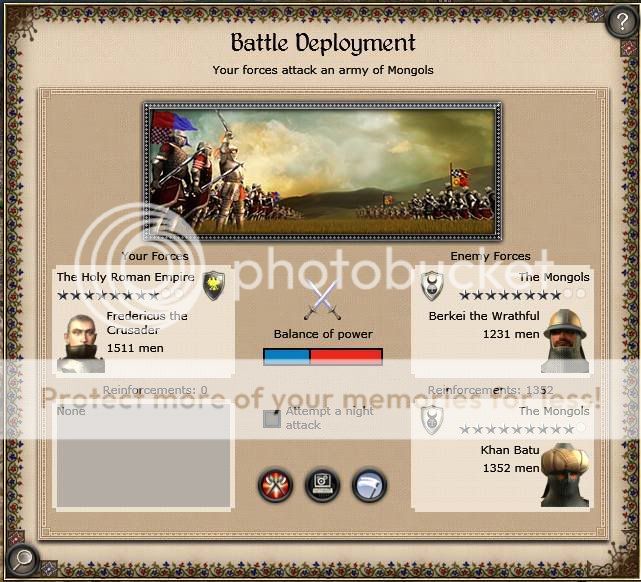
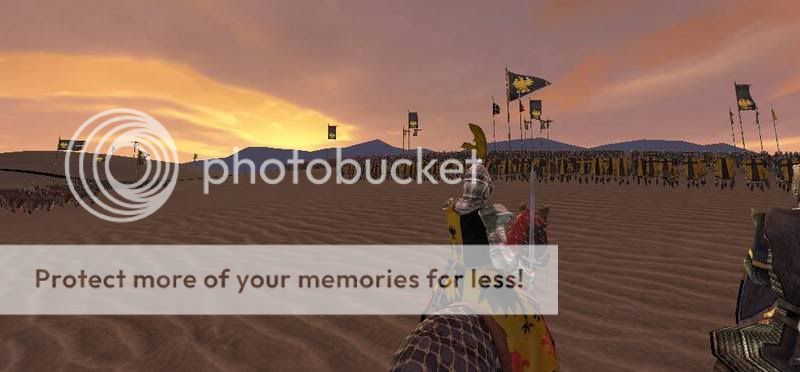
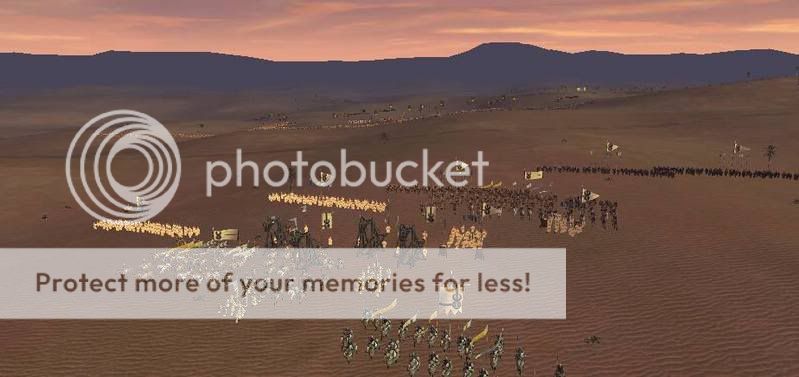
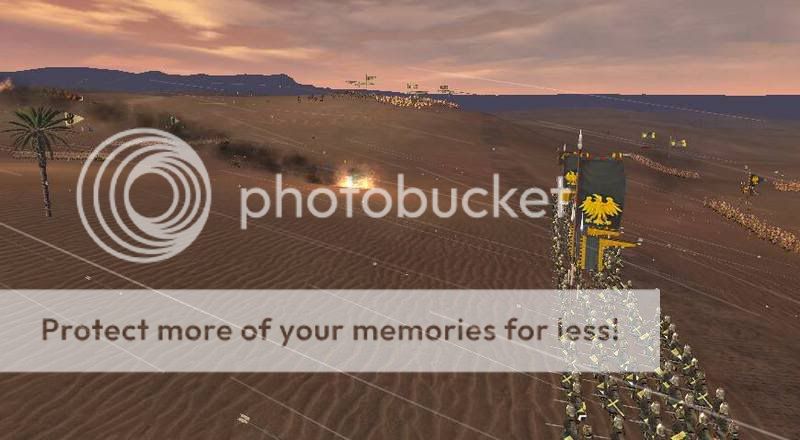

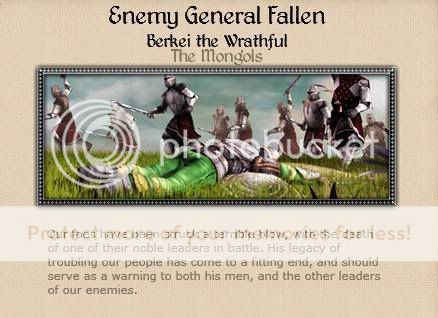
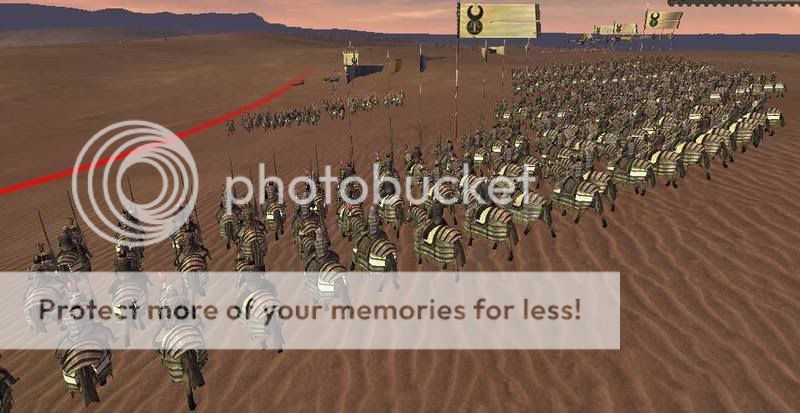
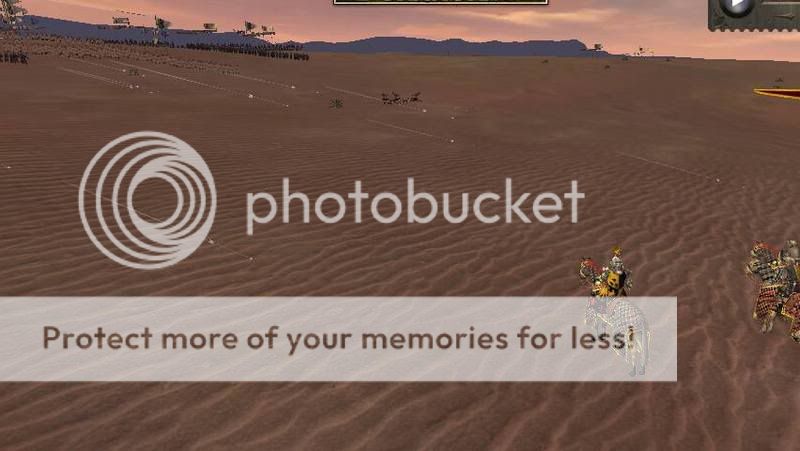
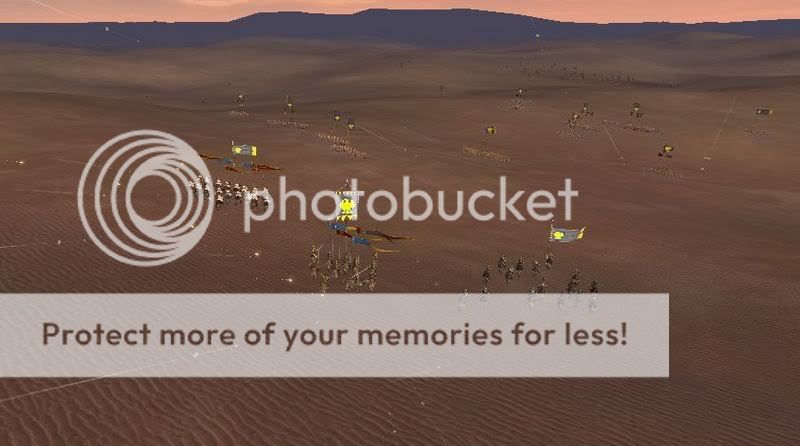

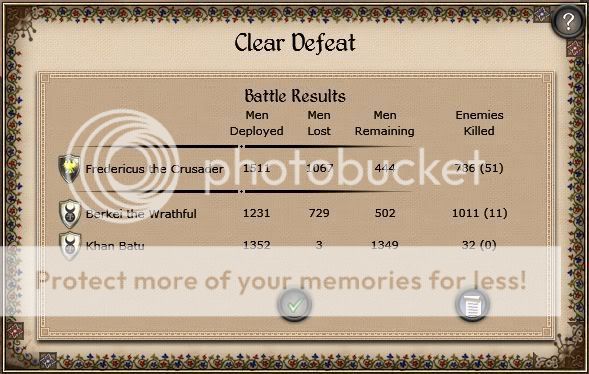


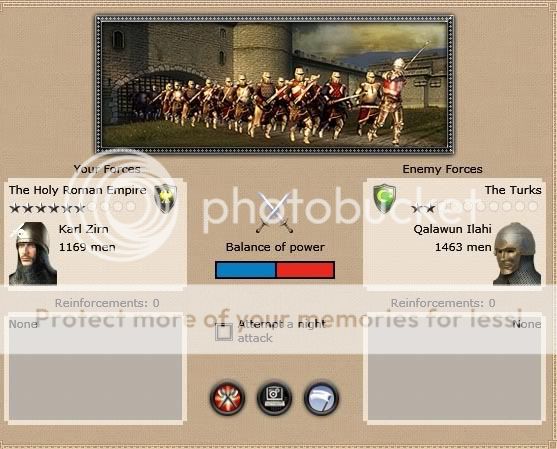

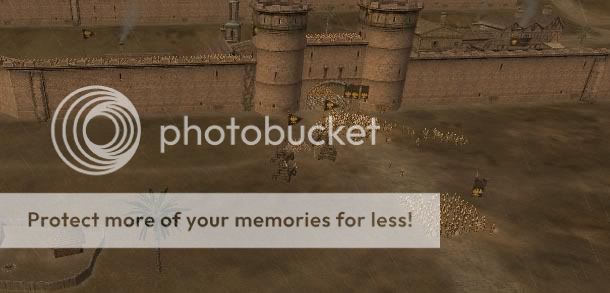
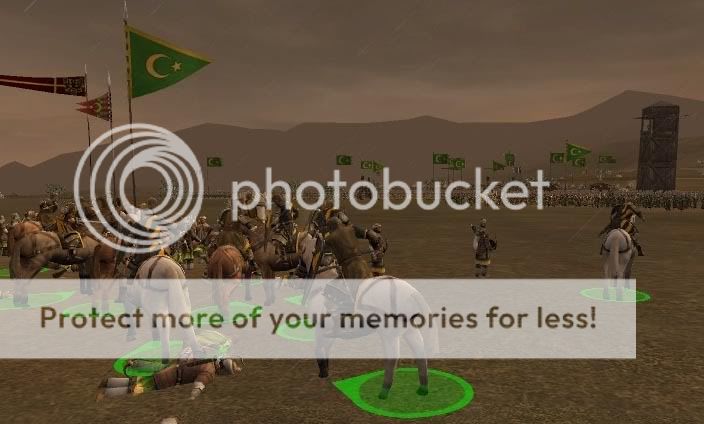
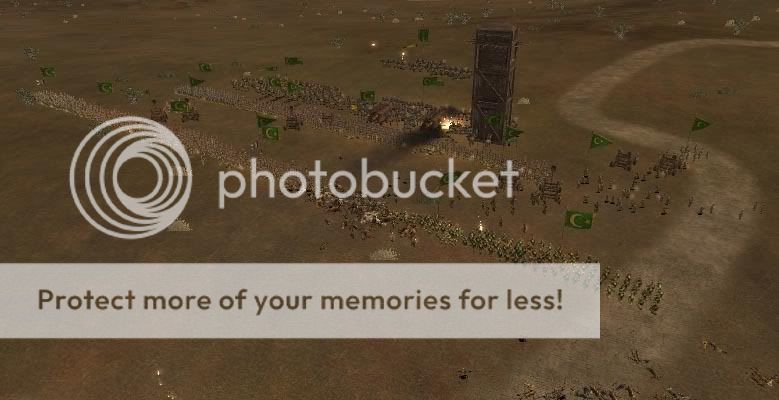
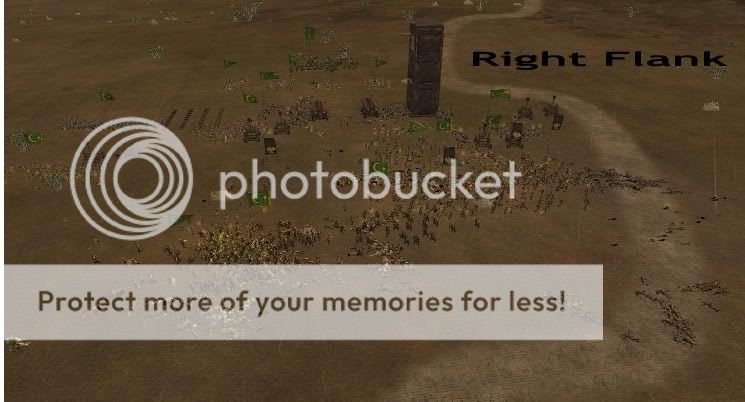
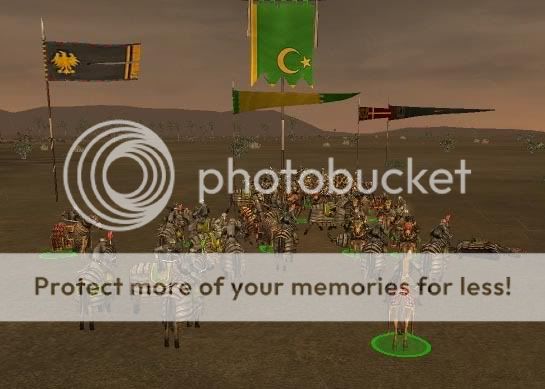
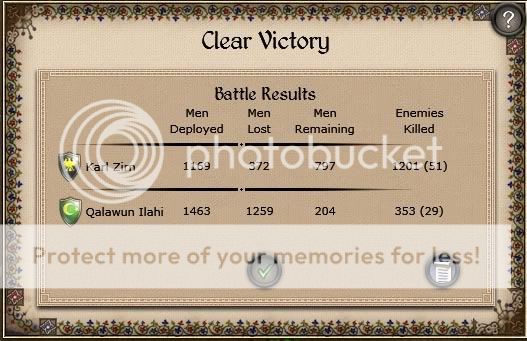
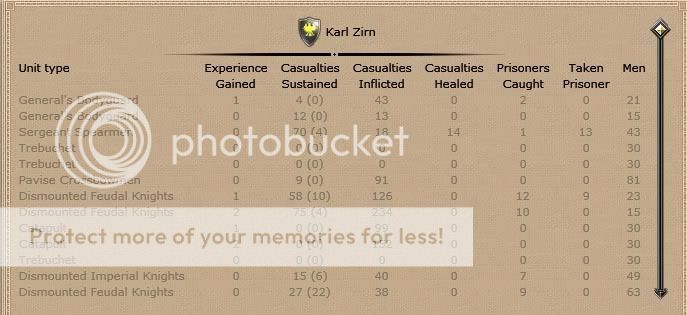
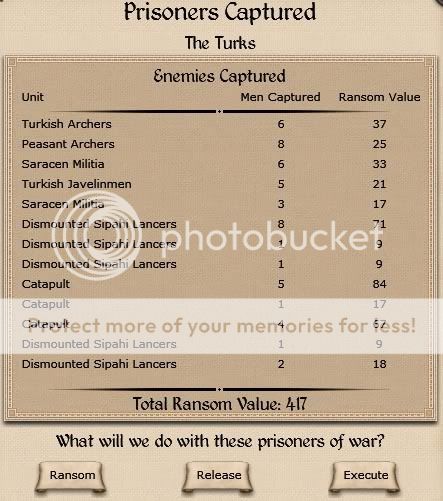
















Bookmarks